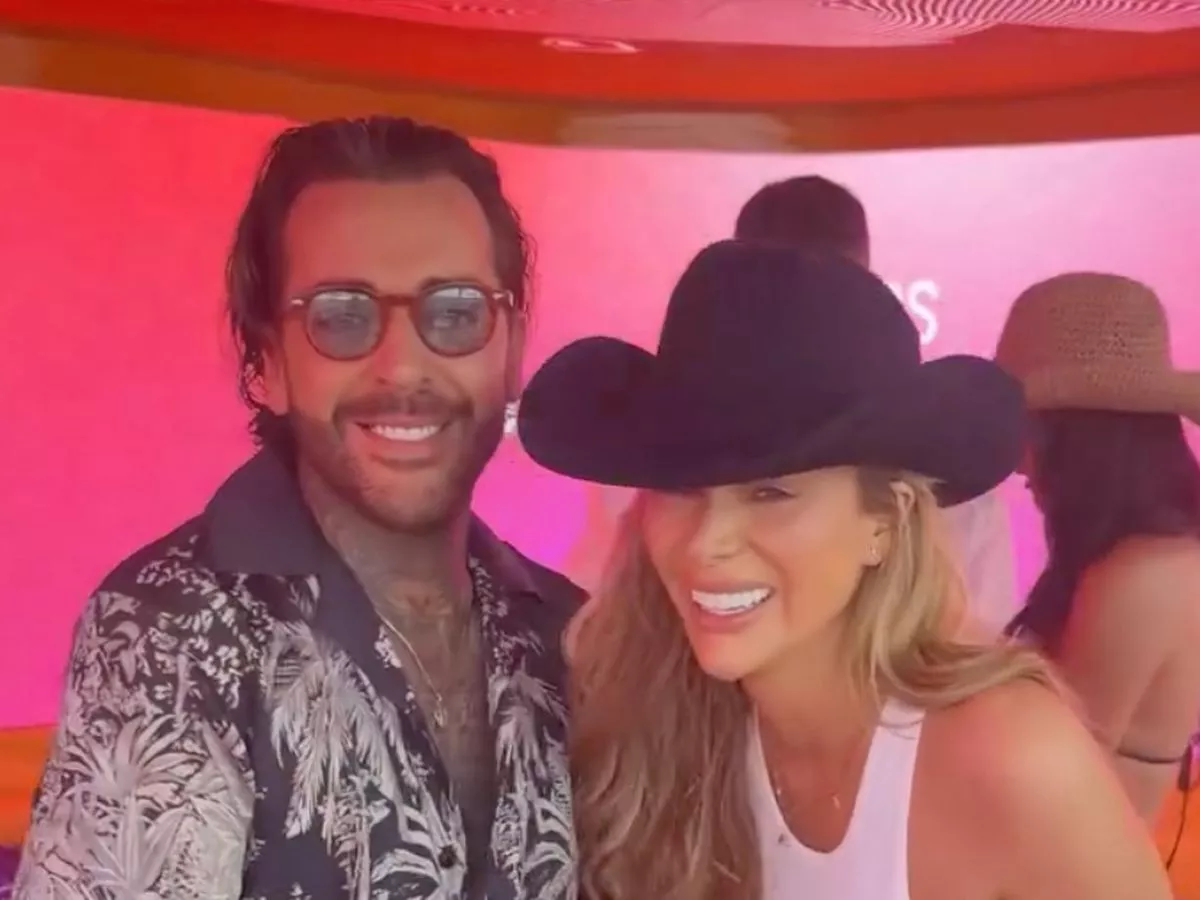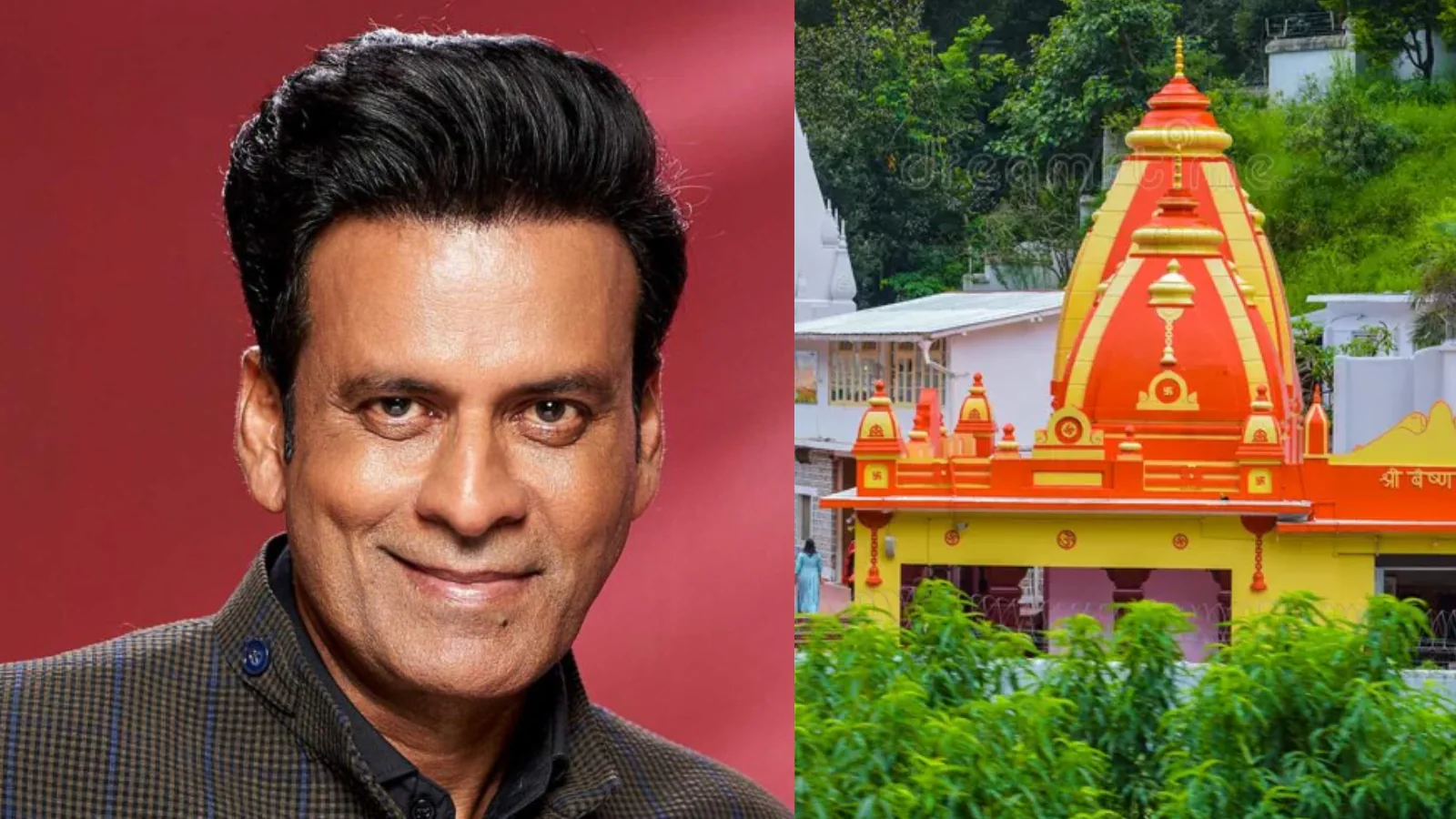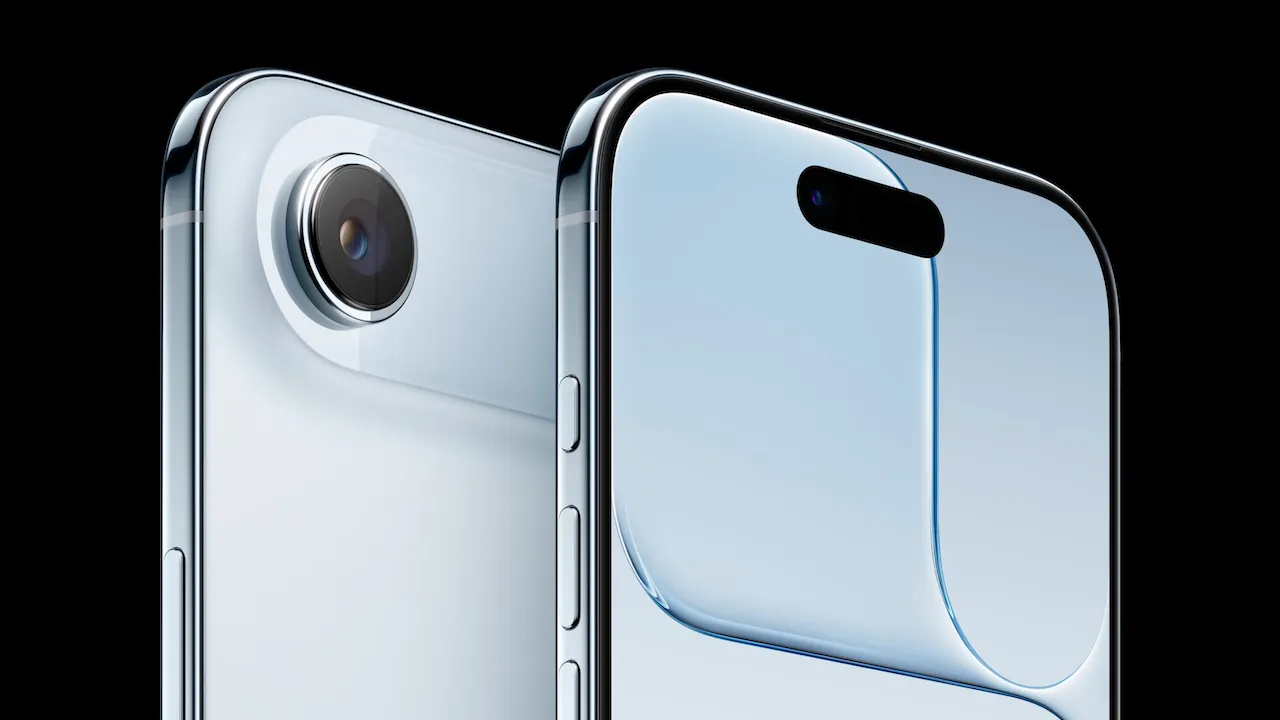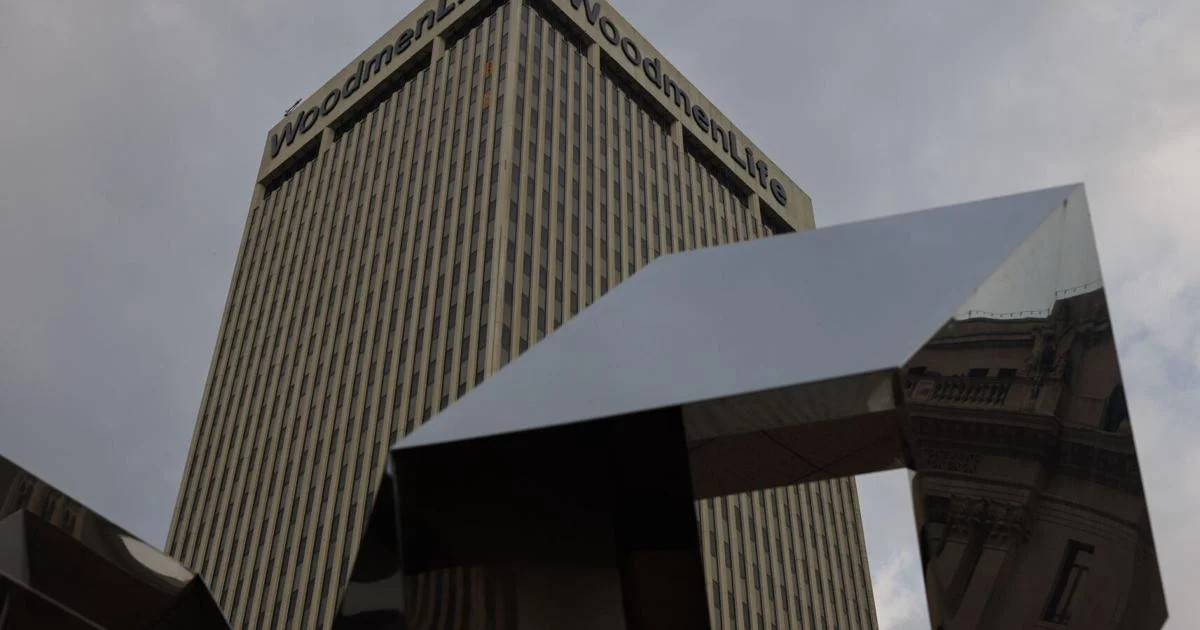By Samir Jeraj
Copyright newstatesman
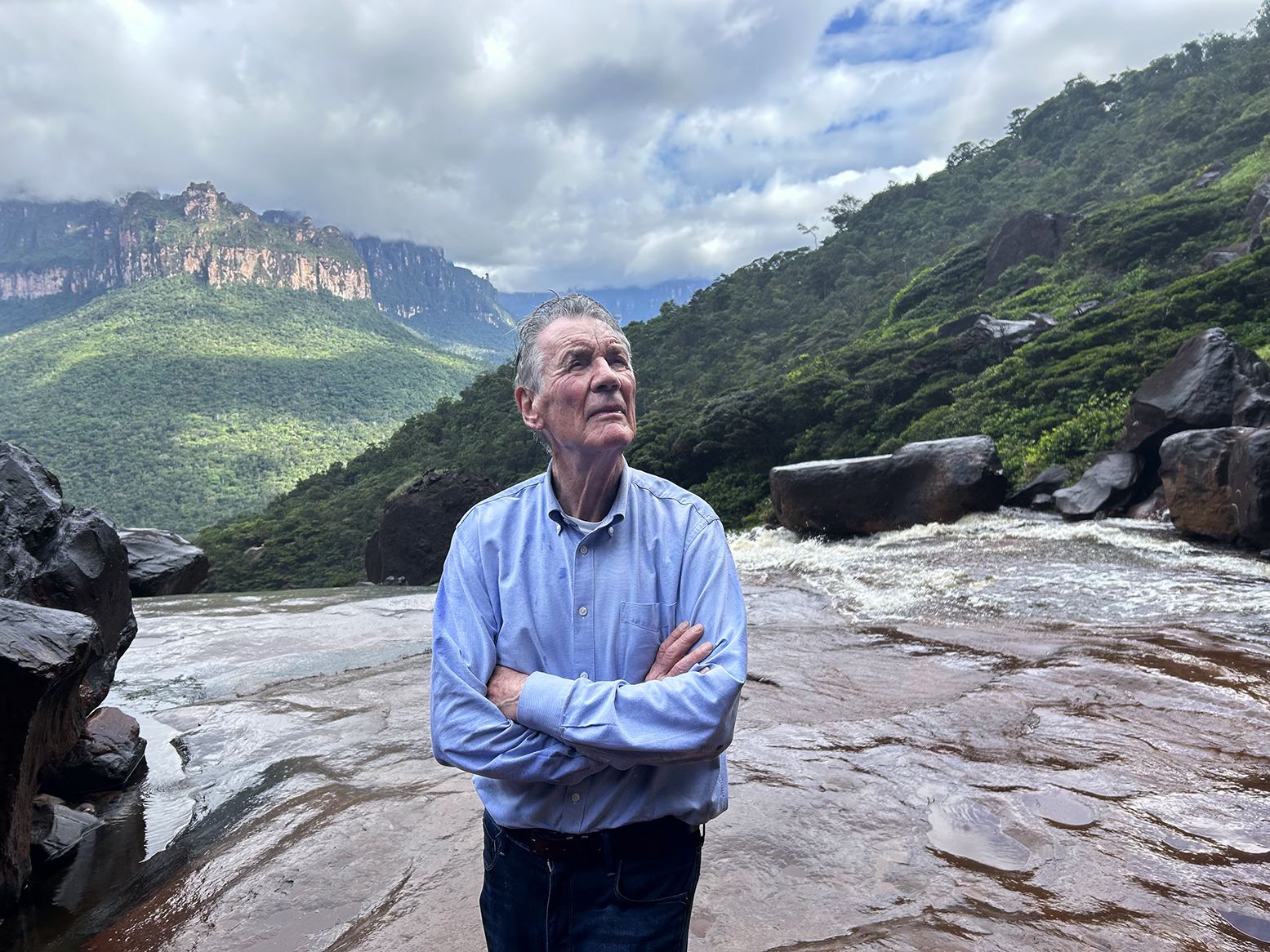
The opening furtive shots of Venezuela out of the window of a late-night car from the airport set the scene for Michael Palin’s latest travel documentary for Channel 5. The opening voiceover fills in the context: Palin’s visit took place months after Nicolás Maduro was declared president after a heavily disputed election and protest was violently suppressed.
The risk is very present. Palin and his film crew were detained by the military intelligence services while about to film by a statue of the late president, Hugo Chávez (gifted by Vladimir Putin). Nine or ten armed men with guns arrived and kept them for seven hours while they took their details and photographed their possessions. “It wasn’t very funny then,” Palin said at a Q&A session following a screening of the first episode.
Fortunately, the armed men eventually found the fish-slapping dance from Monty Python on YouTube, and the tension was somewhat broken. “Their rifles shook with joy,” Palin recalls. Michael Palin in Venezuela follows on from programs set in North Korea, Iraq, and Nigeria – also hosted by Palin – and with more likely to come. Each instalment involves visiting a country mired in complex politics. The Venezuelans repression exists to shore up the authority and power of President Maduro, a former bus driver, who lacks the charisma of his predecessor. The visage of Maduro is a constant presence across buildings, on television (where he hosts a surreal variety show), in an in-flight magazine and in a comic strip entitled “Super Bigote” (Bigote means “moustache”).Venezuela was once a tourist destination and has left behind significant tourism infrastructure, including luxury hotels built during the boom years of the 1950s. Nowadays only a handful of airlines fly to the country, and many nations advise against visiting due to security concerns.
At 82 (he was 81 at the time of filming), Palin still maintains a charming curiosity and humanity even as the world seems to falling apart. To mark Valentine’s Day, he asks national celebrity Valentina Quintero whether Venezuelans are good lovers, something he admits he would never ask in the UK.
In a memorable scene in Petare, one of the neighbourhoods encircling Caracas, he meets three-year old Aleph, whose mother migrated to the US through the perilous Darién Gap – a 60-mile stretch of roadless rainforest, mountains and swamps on the border of Colombia and Panama – in search of work to support her family. She was one of the eight million people who have sought to reach the US that way. Aleph’s aunt dissuaded his mother from taking the then one year-old, and the child has been left in her care since. There’s a touching moment when Aleph’s mother speaks and sees the toddler through a phone screen – something she does every day.
Outside, Palin muses how extreme their living situation must have been for her to contemplate taking her baby across the Darién Gap, and how different their lives are compared to his family’s. “People like that get shoved around the world,” he said to me.
Visiting Canaima in the Amazon, Palin meets a family from the Pemon indigenous tribe, whose land and livelihood as farmers are afflicted by a boom in illegal gold mining. Tragically, many of the gold miners are Pemon too, drawn to money or pressed into work by gangs despite the catastrophic impact on the environment.
It would not be a Michael Palin program without moments of levity and wonder, however. He steps behind a waterfall in Canaima and experiences its exhilarating power, declaring: “I’m 81, I shouldn’t be here, I should be in bed!” Later, he reflected, “I could have fallen over at any time, but what a way to go!” At the spectacular Angel Falls, the highest waterfall in the world, his helicopter makes a perilous landing on the edge of a cliff. Palin’s series producer revealed at the Q&A that there was no other way down if the helicopter failed to come back.
Venezuela now finds itself back in the news. At the start of September, Donald Trump ordered the destruction of a Venezuelan ship allegedly carrying drugs – an attack which killed 11 people. He has also threatened to shoot down Venezuelan planes, and has not ruled out a strike on the country itself. It seems likely that people like Aleph and his mother will be the ones to suffer, “shoved around” by domestic policies as much as international ones. Even so, Michael Palin in Venezuela is an affirmation of life against the brutality of dictatorship, economic crisis and environmental destruction; one where we are invited to understand the Venezuelan people beyond their precarious geopolitical position.
Michael Palin in Venezuela is available on Channel 5 at 9pm on 16 September.
